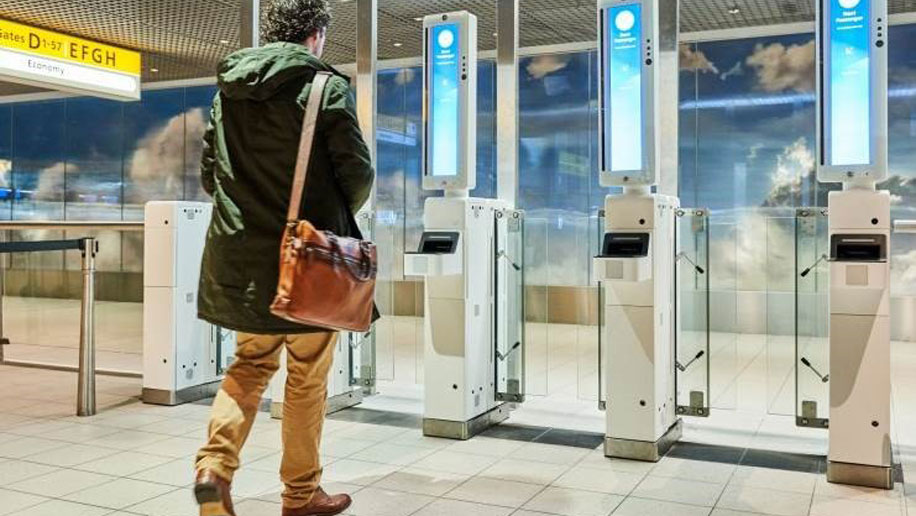Cathay Pacific has begun a trial of biometric boarding gates at Amsterdam Schiphol.
The gates use facial recognition technology to match the passenger in front of them with a database containing the images of those who should be on board.
Passengers will be invited to take part in the trial at check-in. Those who opt in will be taken to a registration kiosk to scan their passport and boarding pass and have their picture taken. They will then be approved at the departure gate within seconds, without having to show any documents.
“For passengers, the journey from arrival at the airport to boarding becomes easier and more efficient”, commented Wilma van Dijk, Schiphol’s Safety and Security Director.
“Now you have to show your passport, your boarding card or both at various checkpoints at the airport, for example, when dropping your luggage, at the entrance to the security check, when passing the border and when you go boarding.
“In the future you can pass these control points more smoothly because you are recognised by your face. You can leave your passport and boarding pass in the bag.”
Cathay Pacific plans to next add passport control to the trial. It is using technology from Lisbon-based Vision Box, a supplier of hardware and software for biometric programmes.
It is a fast-growing field – SITA reports that 71 per cent of airlines and 77 per cent of airports are planning major programmes or research into the technology.
Cathay Pacific, Amsterdam Schiphol, KLM and the Dutch Government are partnering to introduce Vision Box’s ‘Seamless Flow’ system at the airport, which sees biometrics used from check-in through security to boarding.
A similar system is already in place at Atlanta’s Hartsfield-Jackson airport, where Delta Air Lines partnered with US Customs and Border Protection (CBP) and the Transportation Security Administration to open an end-to-end biometric terminal last year.
CBP is currently working with a host of other airlines to trial the technology. Lufthansa recently launched biometric boarding at Miami International while American Airlines is trialling it at LAX.
Heathrow is investing £50 million in a project it says will see “the world’s largest deployment of biometrically enabled products including bag drops and self-boarding gates” by the summer.
While the technology could make the airport experience smoother for travellers, potentially removing the need for boarding passes and even passports, some privacy campaigners have raised concerns over its growing use amid a lack of public consultation or regulation, questioning how long companies and governments will hold the biometric data and what they will do with it.
Meanwhile some studies have shown facial recognition technology to be less effective at correctly identifying women and people with dark skin.


